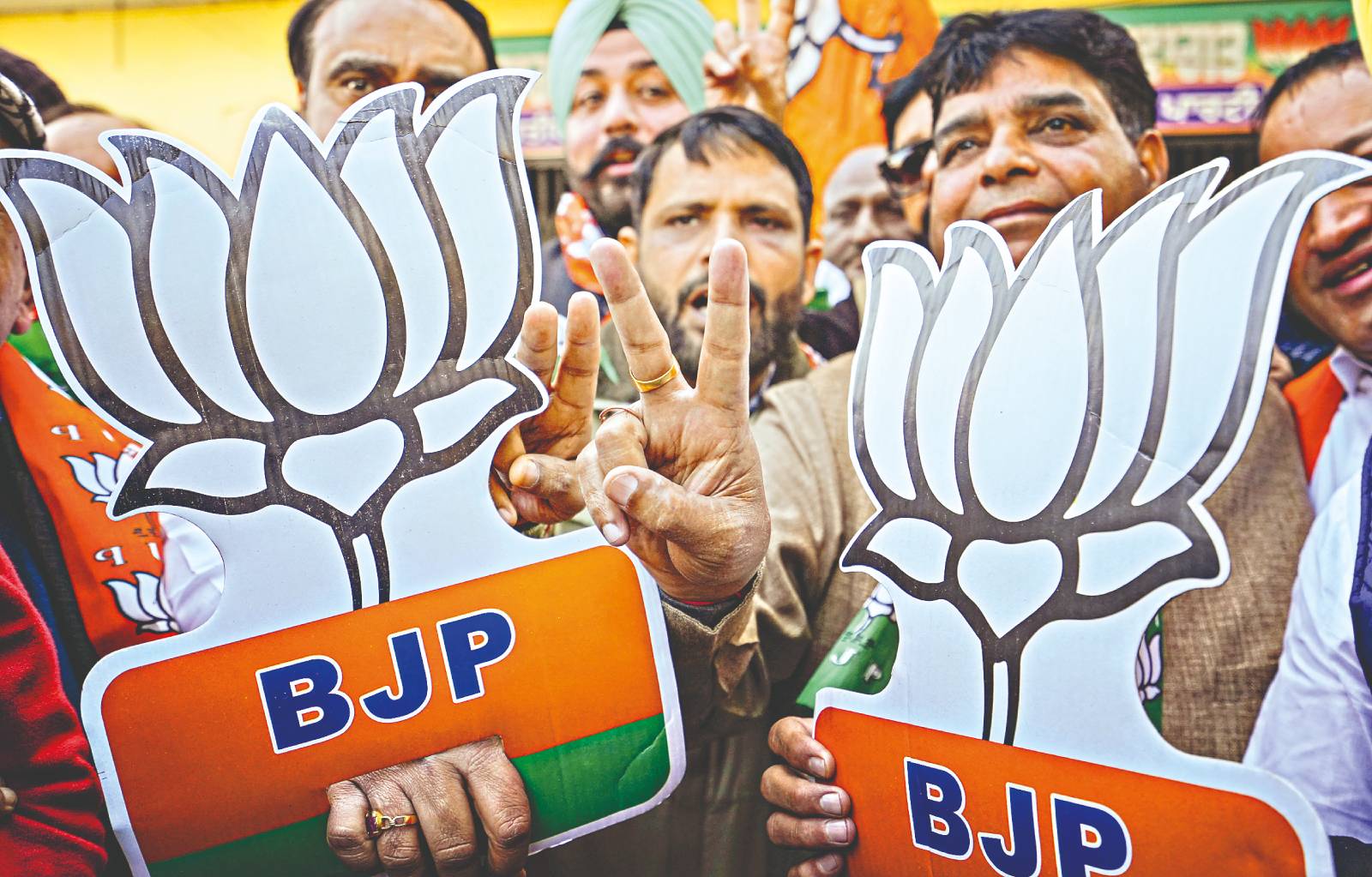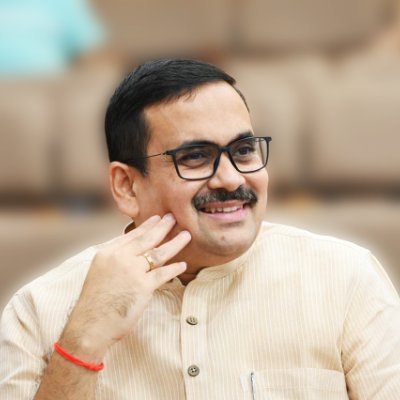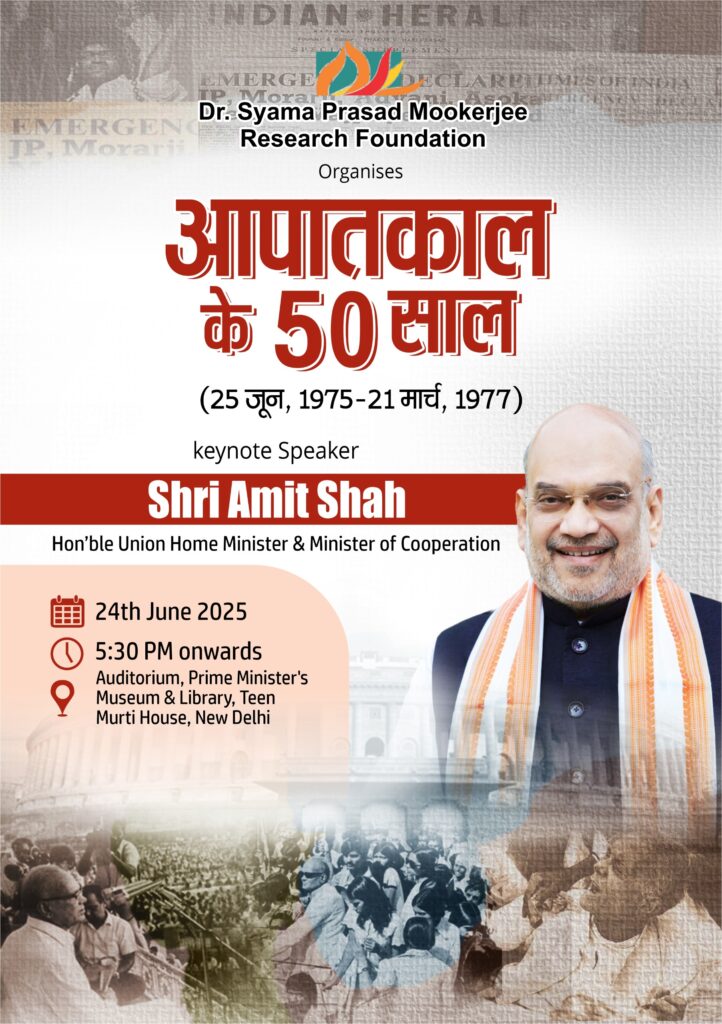In his thanksgiving address to BJP workers and the people of Delhi after the resounding mandate in favour of the BJP, ending a 27-year hiatus, Prime Minister Modi referred to two very interesting characteristics of the Congress. One was the habit of its leaders, especially its first family members, to become Hindu when elections were around the corner and later, when they realised that it did not pay dividends, to hop to the other pole. Its other habit was that of a parasite. The Congress ate up, corroded, sucked and ultimately worked to desiccate smaller parties which it had ensnared into an alliance.
In his thanksgiving address to BJP workers and the people of Delhi after the resounding mandate in favour of the BJP, ending a 27-year hiatus, Prime Minister Modi referred to two very interesting characteristics of the Congress. One was the habit of its leaders, especially its first family members, to become Hindu when elections were around the corner and later, when they realised that it did not pay dividends, to hop to the other pole. Its other habit was that of a parasite. The Congress ate up, corroded, sucked and ultimately worked to desiccate smaller parties which it had ensnared into an alliance.
Nehru’s opposition to Somnath essentially displayed his anti-Hindu mindset. It is a mindset that has percolated in his political heirs. K.M. Munshi’s immortal rejoinder to a sniggering Pandit Nehru, who had called the Somnath reconstruction project “Hindu revivalism”, ought to be recollected each time Nehru’s heirs indulge in their temple visit rigmarole. “It is my faith in our past’, wrote Munshi, “which has given me the strength to work in the present and to look forward to our future. I cannot value freedom if it deprives us of the Bhagavad Gita or uproots our millions for the faith with which they look upon our temples and thereby destroys the texture of our lives.” Somnath, once restored, Munshi told Nehru, “Will give to our people [a] purer conception of religion and a more vivid consciousness of our strength.” Nehru disapproved of Babu Rajendra Prasad’s gesture of participating in the pran-pratishtha of Somnath Temple once it was completed. In his heart, Nehru always looked upon Rajendra Prasad as an obscurantist for his adherence to worship and rituals. Even as president, for instance, Rajen Babu would adhere to his schedule of settling for his Puja at 7.30 am and reading the Gita and Ramayana daily. His public interviews would begin only after that at 10.00 am.
Despite his allergy to Hindu rituals and worship, Nehru had no qualms in trying to reach out to sadhus by trying to form a Sadhu Samaj through the intervention of Gulzari Lal Nanda. He wanted members of the Sadhu Samaj to endorse his socialist policies and to amplify them among the masses. It was the first example of opportunism. Those sadhus whom he termed as “lazy rascals” appeared to him as useful tools for tom-tomming his policies.
In 1966, his daughter ordered firing on sadhus, who were protesting in front of Parliament, calling for a ban on cow slaughter. Several sadhus were killed and injured. In a volte-face a decade later, Indira visited the Kumbh in Haridwar in January 1977. Having called off the Emergency, Indira realised she would have to put up a spectacle to redeem her image. The best way was to appear to surrender to sadhus. Historian Nikhil Menon writes how, in her public speech at the Kumbh, she proffered an assurance that “there would be no state interference in Hindu religious traditions” and pledged to take measures for cow protection. She “wanted to make clear that her government was in no way opposed to religious practice. It was regrettable; she felt that some people had deliberately contorted the meaning of secularism to be atheism or irreligiousness”, records Menon. Indira had declared elections for March and was going out of her way to make sure that she was not seen as being opposed to Hinduism and Hindus.
Indira Gandhi’s carefully crafted public persona of being a devout Hindu was a post-1977 phenomenon. Her reactions and responses, at times, gave away her actual approach and attitude. Writing in “The Motherland”, K.R. Malkani once took on Indira for her cavalier response when asked about her meeting with Mahaswami Kanchi Sankaracharya. Malkani was acerbic, “It is surprising that she should be apologetic about meeting religious leaders. Asked about her visit to Shankaracharya of Kanchi, she said lamely: “I am interested in meeting people who, I am told, are interesting.” Do we go to meet a Shankaracharya because he is an interesting person like, say, Charlie Chaplin?”
Indira’s grandchildren have continued that trend. Like Nehru betrayed his hatred for Hindus by opposing the Somnath temple reconstruction project, just as Indira displayed her denigration of Hindus by ordering firing upon protesting sadhus, Indira’s grandson Rahul too, let his hatred for Hindus slip out when he had infamously observed, while addressing a programme on his father’s 70 birth anniversary in 2014, that those who visit temples and worship goddesses molest women.” These words should not have come as a surprise. He was just living up to the reputation of his ancestors. Abuse Hindus, target their faith, brand them as anti-socials and then visit their temples, offer mock pujas, and indulge in theatrics during election season. Even when I.N.D.I. alliance partners likened Hindus and Sanatana Dharma to pestilence that needs to be eradicated, Rahul and Congress lauded the remark and attempted to justify that hate speech.
But the Congress realised that this drama was yielding no dividend. It has restricted it to scoring electoral zeros with its electoral base depleting and its support evaporating. It is thus veering to the other extreme and is increasingly coming across as a present-day version of Jinnah’s Muslim League. Prime Minister Modi had hit the point hard. His words exposed the Congress’s cheap duplicity. Its leaders’ pretensions of being Hindus and their mock-worship in temples did not bail them out in the general elections of 2024; it has not been able to reverse their rapidly sagging fortunes in states like Uttar Pradesh, Odisha or, more recently, in Delhi. The more Rahul Gandhi and his sister visit temples as if they were shopping malls, the more electoral zeroes will come their way. About Congress as the parasite party, more in the next analysis.
(The views expressed are the author's own and do not necessarily reflect the position of the organisation)



